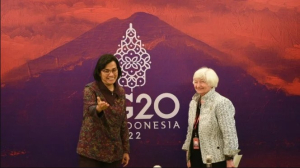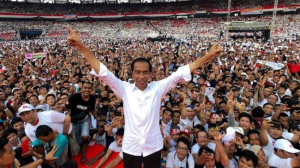G20 Summit targets: Responding to food crisis, clean energy
The world is now facing the risk of a global food security crisis. Global markets for food, fertilizer and fuel are thus extremely nervous. Of course, market forces could solve such a crisis, but only by driving food prices higher and forcing hundreds of millions of households into possible hunger and starvation.
Averting food crisis threats
A minor movement in the Congressional Black Caucus (CBC) highlighted this issue of food crisis. If Europe, the United States, Australia and the Solomon Islands joined forces in supporting it, this could undoubtedly cause problems for the Indonesian government ahead of the G20 Summit in Bali in November.
Globally coordinated public measures can avert this scenario. Even under the best circumstances, such activities are challenging. Given Russia's invasion of Ukraine in late February and extensive disruptions to wheat, maize, vegetable oils, fertilizers and natural gas supplies, such necessary global public interventions will be extraordinarily difficult to plan, agree on and implement. They must, nevertheless, be attempted.
Fortunately, Indonesia's presidency of the G20 Summit provides a once-in-a-lifetime opportunity to accomplish just that. For the G20 Summit to be successful on food security, two tracks must function together: (1) the diplomatic and institutional coordination channels via which decisions are reached, and (2) the substance of those decisions.
The first is working smoothly, with the Indonesian government actively taking the lead in placing food security at the top of the G20 agenda for the Summit Meeting. Because the necessary policies and programs have yet to be developed, now is the moment to make headway in defining the substantive subjects and measures that the G20 Summit participants may examine and agree upon.
Until now, several countries had already confirmed the attendance of their heads of government: Argentina, Australia, Brazil, Cambodia, Saudi Arabia, Singapore, South Africa, South Korea, Suriname, as well as the World Bank.
Promoting carbon neutrality
One of the main themes at the G20 Summit was promoting carbon neutrality and maximizing the use of renewable energy to combat climate change, as G20 member countries account for roughly 75% of global energy demand.
These are not favorable times to question the significance of combating inflation. That is exactly what Indonesia - an emerging market icon that is continuously concerned about the strength and duration of capital flows - is thinking about. It doesn't have to end in tears if handled properly. With global consumer prices rising, it takes a gutsy nation to ask its central bank to do more than just keep the cost of living stable. Policymakers have been blamed for failing to act sooner and more strongly to control inflation.
The G20 countries have agreed on the importance of investment and funding support for clean energy. The participants of the Energy Transitions Ministerial Meeting (ETMM) sent a strong signal to the market that they were taking steps to boost investment, an effort that is critical for improving various technologies and enhancing innovation.
Indonesia was working hard to protect the world from the repercussions of conflicts, emphasizing the necessity of cooperation. The host country also emphasized the importance of the T20 Summit, which was convened to present suggestions to world leaders at the G20 Summit in November. Indonesia emphasized two points, how the G20 countries accepted and managed previous crises and post-war security challenges that escalated global tensions.
The G20 events Indonesia’s three blue economy strategies and action plans, which include expansion of conservation areas with a target of 30% of the total area of Indonesian waters; management of marine debris; and sustainable management of marine, coastal, and small islands to protect coastal resources and small islands from damage caused by economic activities.
Already have an account? Sign In
-
Start reading
Freemium
-
Monthly Subscription
30% OFF$26.03
$37.19/MonthCancel anytime
This offer is open to all new subscribers!
Subscribe now -
Yearly Subscription
33% OFF$228.13
$340.5/YearCancel anytime
This offer is open to all new subscribers!
Subscribe now






